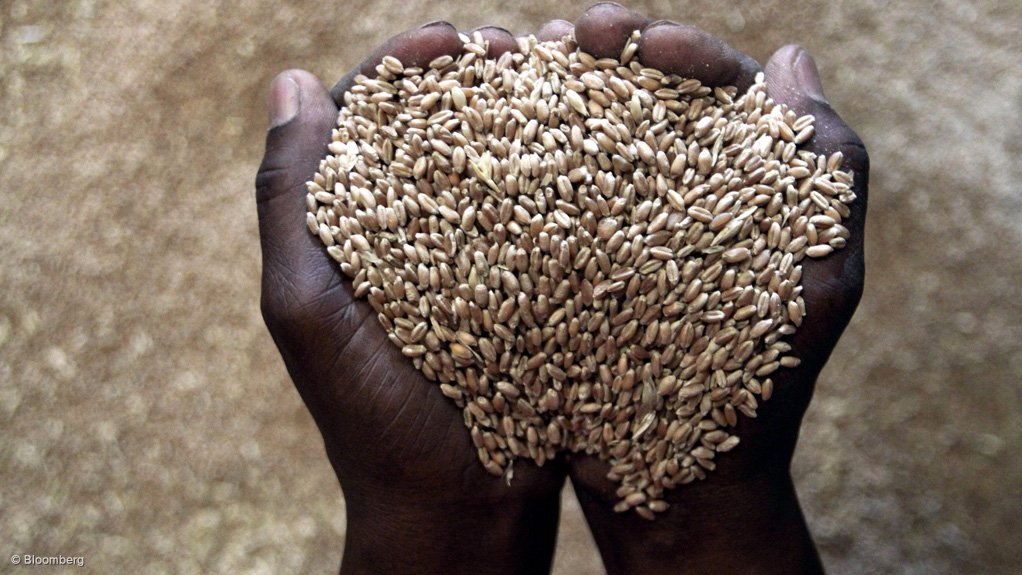A 30% increase in whole grain adoption can reduce carbon emissions by 120Mt - BCG finds
A report published by global consultancy Boston Consulting Group (BCG) finds that, with thoughtful and gradual changes to how wheat is grown, processed and consumed, the food system can be transformed to be more nutritional.
With grains, in particular, including wheat, corn and rice, most nutrients are stripped during refining contributing to various diet-related diseases. The way grains are currently produced also has a negative impact on the environment, the consultancy states.
In fact, grains have the biggest environmental impact of all forms of food production – according to a range of climate and nature metrics, BCG says.
While meat production is responsible for greater carbon emissions per ton than grain production, the massive volume of grains grown every year results in significant environmental damage.
BCG highlights that a 30% increase in the adoption of whole grains globally could reduce global carbon emissions by 120-million tons a year.
The consultancy believes that, by growing and eating more whole grains fortified with vitamins and minerals, as well as more diversified cereals, it can address the nutritional and environmental issues related to grain consumption.
Fortified whole grains deliver six to seven times the nutritional value as the same amount of grain that is later refined. They also provide greater nutrition with fewer inputs, which reduces the environmental footprint in terms of fewer emissions, and less land use.
BCG adds that, by using fewer synthetic inputs, the soil and ecosystem health improves, while the need for smaller parcels of land reduces deforestation requirements and thereby limits habitat and biodiversity loss.
Moreover, shifting to fortified whole grains would take no additional resources than what is used today and would produce 20% more food for human consumption, confirms BCG MD Zoë Karl-Waithaka.
BCG also finds that greenhouse-gas emissions caused by global grain production are greater than the emissions of Russia, Brazil and Germany combined.
Only 26% of wheat and 3% of rice are fortified, and less than one-quarter of all grains are consumed whole.
PRACTICAL SOLUTIONS
A full replacement of the refined versions of the grains eaten today is not realistic, hence the shift toward fortified whole grains should be gradual.
BCG says companies across sectors and value chains can seize this opportunity, while being sensitive to the cultural contexts that define food preferences.
Governments can also act directly by shifting institutional procurement to fortified whole grains, particularly for meals served in schools. BCG adds that governments can take action by enforcing existing fortification mandates and promoting legislation that requires subsidies or tax breaks to support the cultivation and fortification of whole grains, as well as the use of environmental labelling.
Nonprofit organisations can encourage the production and consumption of whole grains and fortified whole grains, as well as encourage best farming practices and reductions in food loss and waste.
BCG urges companies to increase the share of whole grain products within their portfolios and to incorporate higher percentages of fortified whole grains in new product lines as part of their net-zero ambitions.
To make this work, however, manufacturers need to offer products that deliver comparable functional attributes including shelf life, cooking characteristics and taste – which consumers value in refined grain products.
WONDER CROPS
Karl-Waithaka explains that 52% of the world’s food is sourced from only six plant species, with 50% of calories coming from rice, wheat and corn.
In many parts of the world, these crops have sidelined other largely indigenous and potentially more nutritional crops that used to be cultivated widely but now take up a much lower share of cultivated land and of people’s diets.
In Africa, these “wonder crops,” particularly cereals such as millet, teff, fonio and sorghum, are better suited to their environment. They are less resource intensive to cultivate and more pest and drought resistant. The wonder crops are also more adapted to regional terrains than rice, wheat and corn.
Overall, wonder crops provide an opportunity to drive crop species and global diet diversity in a way that is environmentally efficient given the amount of nutrition they produce. Shifting to these crops will require more research to optimise their yield and promote their cultivation.
“There is huge opportunity in food system transformation. However, it will be critical to change what we grow, process, and consume thoughtfully and gradually,” Karl-Waithaka concludes.
Comments
Press Office
Announcements
What's On
Subscribe to improve your user experience...
Option 1 (equivalent of R125 a month):
Receive a weekly copy of Creamer Media's Engineering News & Mining Weekly magazine
(print copy for those in South Africa and e-magazine for those outside of South Africa)
Receive daily email newsletters
Access to full search results
Access archive of magazine back copies
Access to Projects in Progress
Access to ONE Research Report of your choice in PDF format
Option 2 (equivalent of R375 a month):
All benefits from Option 1
PLUS
Access to Creamer Media's Research Channel Africa for ALL Research Reports, in PDF format, on various industrial and mining sectors
including Electricity; Water; Energy Transition; Hydrogen; Roads, Rail and Ports; Coal; Gold; Platinum; Battery Metals; etc.
Already a subscriber?
Forgotten your password?
Receive weekly copy of Creamer Media's Engineering News & Mining Weekly magazine (print copy for those in South Africa and e-magazine for those outside of South Africa)
➕
Recieve daily email newsletters
➕
Access to full search results
➕
Access archive of magazine back copies
➕
Access to Projects in Progress
➕
Access to ONE Research Report of your choice in PDF format
RESEARCH CHANNEL AFRICA
R4500 (equivalent of R375 a month)
SUBSCRIBEAll benefits from Option 1
➕
Access to Creamer Media's Research Channel Africa for ALL Research Reports on various industrial and mining sectors, in PDF format, including on:
Electricity
➕
Water
➕
Energy Transition
➕
Hydrogen
➕
Roads, Rail and Ports
➕
Coal
➕
Gold
➕
Platinum
➕
Battery Metals
➕
etc.
Receive all benefits from Option 1 or Option 2 delivered to numerous people at your company
➕
Multiple User names and Passwords for simultaneous log-ins
➕
Intranet integration access to all in your organisation





















